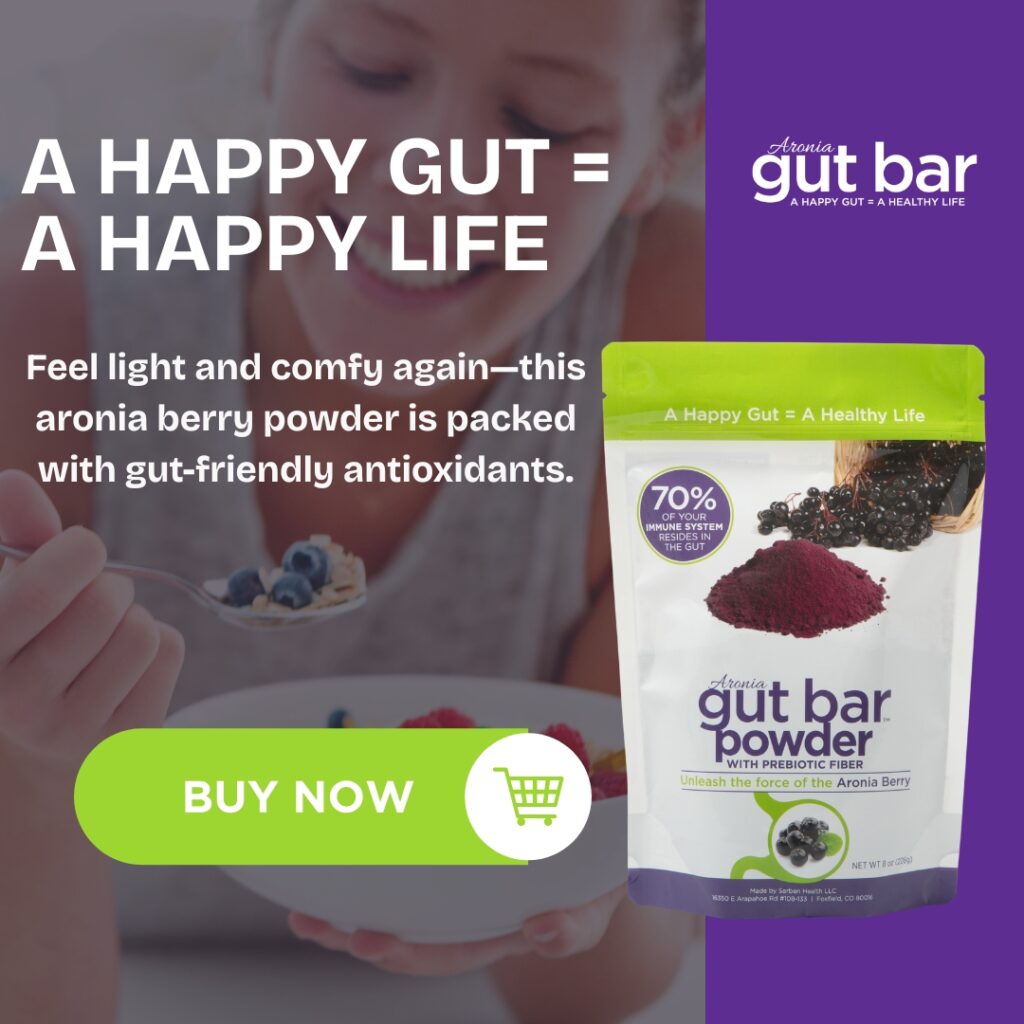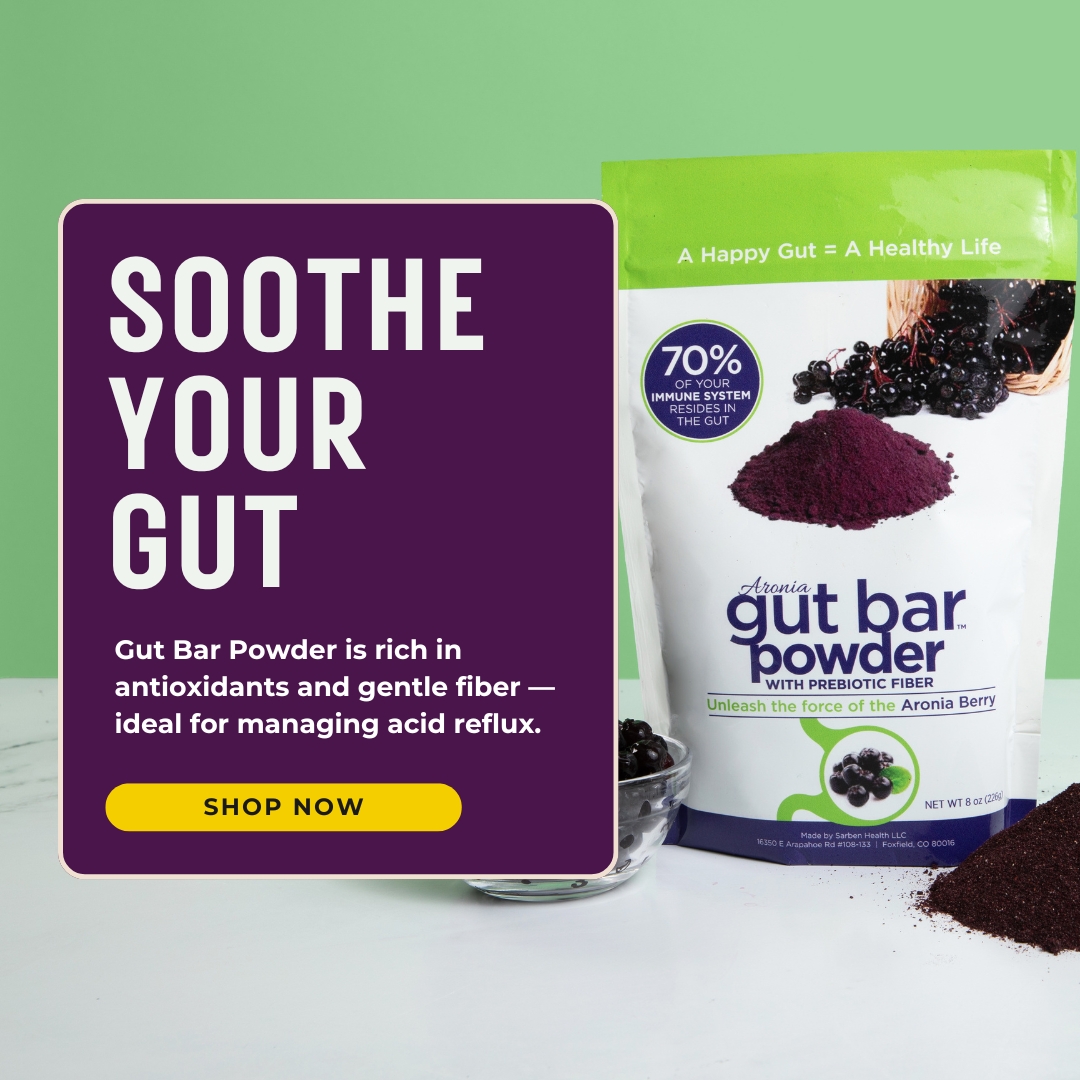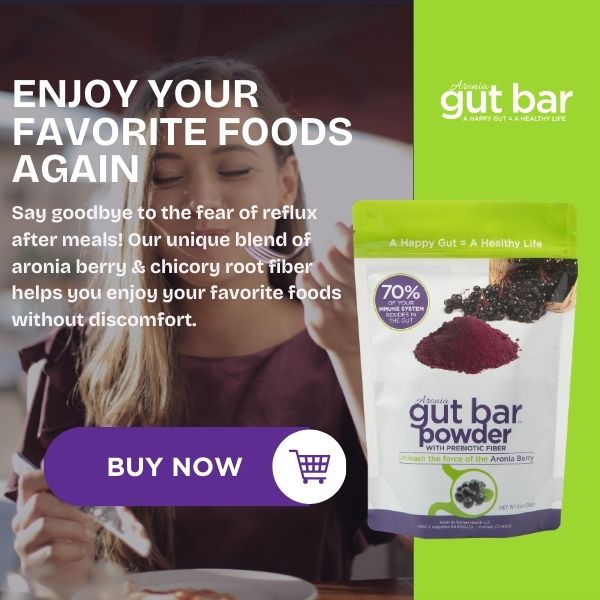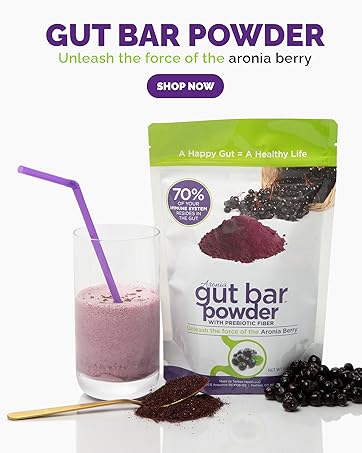If you’ve ever felt burning in your chest after eating, or had a sour taste creep up your throat, you might be dealing with something called GERD. That stands for Gastroesophageal Reflux Disease. It’s a long name for something that a lot of people struggle with, and it can make eating and living comfortably a challenge.
But here’s the good news: there are simple, natural ways to support your digestive system so GERD doesn’t rule your life. And yes, one of them includes a powerful berry that might surprise you!
What is GERD, and Why Does It Happen?
GERD happens when acid from your stomach travels back up into your esophagus (the tube that carries food to your stomach). This back-flow is called reflux. It can feel like heartburn, a burning sensation in the chest, or even make you cough, burp more, or feel like food is stuck in your throat.
This happens because the valve that separates your stomach and esophagus doesn’t close properly. That valve is called the lower esophageal sphincter (LES). When it’s weak or relaxed at the wrong time, acid slips up—and that’s where the trouble begins.

Is GERD Really Caused by Too Much Acid?
When you think of GERD, you probably think of too much stomach acid splashing up into your throat because that’s what it feels like. It makes sense. Burning feeling = too much acid, right?
Not so fast!
You see, your stomach is supposed to be acidic. That acid helps break down the food you eat and helps your body absorb the good stuff, like vitamins and minerals. When you don’t have enough acid, your food doesn’t digest properly. It can sit in your stomach too long, and that’s when gas builds up and pushes acid in the wrong direction—up.
It feels like too much acid, but the real problem is poor digestion from a gut that’s out of balance.
And get this…THIS IS IMPORTANT: In many cases, GERD is actually caused by not enough stomach acid. And when there’s not enough acid, the lower esophageal sphincter is just not working right, relaxes a little too much and allows acid to escape upwards.
What Does the Gut Have to Do With It?
Your gut is like your body’s control center for digestion. It includes your stomach, intestines, and all the helpful bacteria that live there. When everything’s working well, your gut breaks down food easily and keeps things moving the way they should.
But when your gut and all of its gut flora is out of balance—because of stress, too much sugar, not enough fiber, or eating too fast—things can start to go wrong. That’s when issues like gas, bloating, and acid reflux show up.
Let’s focus now on things you can do and things that you probably shouldn’t do when in comes to GERD.
Natural Tips to Help Support Your Body if You Deal with GERD
1. Add Gut-Supporting Foods
Your gut is like a garden. It needs balance to stay healthy. Adding foods that help your gut remain even-keel can make a difference for GERD. These include:
- Consume lots of high polyphenol foods…plant compounds that support healing and balance out the gut bugs. Aronia berries are among the highest in gut-friendly polyphenol compounds that are conveniently packed with massive amounts of antioxidants.
- Fermented foods (like yogurt, kefir, and sauerkraut)
- High-fiber foods (like quinoa and berries)
- Prebiotics (found in things like garlic, onions, and chicory root)
2. Eat Smaller Meals
When you overfill your stomach, there’s more pressure on the LES (that little esophageal sphincter). This can make reflux worse. Eating smaller meals throughout the day takes the load off your digestive system and helps it work better.
3. Avoid Trigger Foods
Some foods are known to make GERD worse for many people. These include:
- Fried or fatty foods
- Chocolate
- Citrus fruits
- Spicy foods
- Tomatoes
- Caffeine
- Soda or fizzy drinks
Try keeping a food journal to notice what foods make you feel worse. Then cut back or replace them with gentler options.
4. Don’t Lie Down Right After Eating
Gravity helps keep food and acid where it belongs—in your stomach. When you lie down too soon after eating, gravity isn’t doing its job. Try to stay upright for at least 2-3 hours after meals.
5. Sleep on an Incline
If nighttime reflux is a problem, sleeping with your upper body slightly raised can help. Use a wedge pillow or raise the head of your bed. This way, even when you sleep, gravity helps keep acid down.
6. Make Small, Healthy Lifestyle Changes
Little things make a big difference. Here are a few tips:
- Don’t wear tight clothes around your stomach. Elastic can be your friend!
- Lose extra weight if needed—it can take pressure off your abdomen.
- Chew gum after meals (it makes more saliva, which can help wash acid back down).
- Quit smoking if you do.
7. Manage Stress
Managing stress through relaxation techniques and even a bit of exercise and time outdoors can help reduce the frequency and intensity of GERD symptoms.
Why Not Just Take Antacids? Well, at least 5 reasons…
Antacids (like omeprazole or Tums) are helpful sometimes. But they don’t fix the problem. They just stop acid for a while…usually too much. And as outlined above, we NEED stomach acid!
Long-term use can even cause other problems, like not absorbing nutrients well or changing the balance in your gut. That’s why many people look for natural ways to support their digestion instead of just covering up the symptoms.
5 Reasons Long-term Omeprazole and Other Antacid Use May Not Be The Best Solution:
1. Poor Nutrient Absorption
Omeprazole and others lower stomach acid so much that your body can’t absorb some vitamins and minerals well, especially vitamin B12, magnesium, and calcium.
2. Changes in Gut Bacteria
Acid helps keep bad bacteria out of your intestines. Less acid means a higher risk of harmful bacteria growing.
3. Increased Risk of Infections
With altered gut bacteria, infections like C. difficile (a bad gut bug) become more common.
4. Bone Problems
Long-term use may be linked to weaker bones and a higher risk of fractures.
5. Rebound Acid
When people stop taking omeprazole suddenly, the acid can come back even stronger for a while, making symptoms worse.
A Small Step Toward Feeling Better
If you’re dealing with GERD, you know how frustrating it can be. That’s why so many nutrition experts are turning to natural options—especially plant polyphenols found in deep purple foods. Aronia berries are a standout. Not only are berries great for nurturing the good bacteria in your gut, but Aronia berries offer a unique blend of power and gentleness. They’re plant-based, packed with polyphenols, and support digestion from the inside out—without the long-term risks that can come with daily medication.
A healthy gut really does change everything. When your digestion feels better, you feel better.
If you’re ready to support your digestion (and manage GERD) naturally, Aronia berries are now available in a simple powder form—making it easier (and tastier) than ever to add these gut-loving nutrients to your daily routine.





